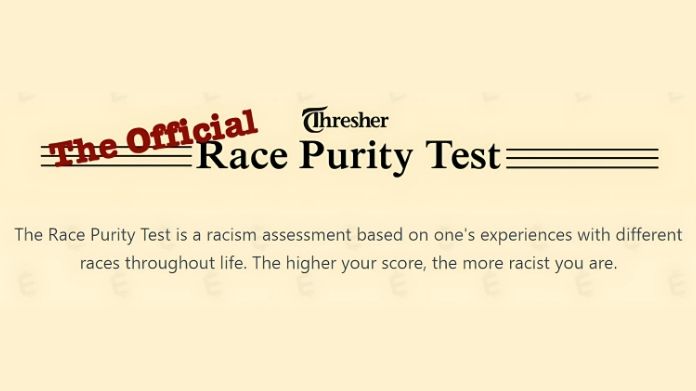Why the Race Purity Test Matters in Today’s Diverse World
Have you ever wondered how your everyday perceptions shape the way you see others? Scroll the buttons down;
In today’s global society, understanding our biases is no longer optional; it’s essential. The Race Purity Test matters because it pushes us beyond comfort zones, helping us unlearn what divides us and embrace what connects us.
The Race Purity Test challenges those invisible patterns. It isn’t about genetics or ancestry, it’s about awareness. This modern self-assessment invites individuals to look inward, question learned beliefs, and recognize the biases that often go unnoticed.
In this article, we’ll explore how the Race Purity Test opens minds, challenges old patterns, and inspires a more equal way of thinking in a world that needs understanding more than ever.
Quick Overview of the Race Purity Test
The Race Purity Test isn’t a genetic or scientific test but a self-assessment that explores personal beliefs about race and identity.
It encourages honest reflection on how we view others, helping individuals recognize bias and develop a fairer, more inclusive mindset in today’s diverse world.
Why the Race Purity Test Still Matters Today?
Even in a time that celebrates diversity, subtle forms of racism continue to shape everyday life.
Prejudice no longer always appears in open conflict; it may also be seen in offhand remarks, stereotypes, online exchanges, or silent privilege that enriches some while excluding others.
- Subtle Forms of Racism
Modern racism isn’t always loud or visible. It shows up in assumptions about how someone should look, speak, or behave. It lingers in hiring decisions, school systems, and media portrayals that favor one group over another.
- Changing Laws, Not Always Minds
Many nations have made significant legal strides toward equality, banning discrimination and promoting inclusion. Yet laws alone cannot change what people feel or believe. Deep-rooted bias often lives in the subconscious, passed quietly through generations.
- Need for Mindset Transformation
Lasting change begins with awareness. Policy reform can create opportunity, but it is understanding and empathy that sustain it. Real progress requires people to question old beliefs and see others as equals in both dignity and worth.
- Role of the Race Purity Test
This is where the Race Purity Test is most effective. It invites individuals to pause and look inside to uncover hidden prejudices, reflect on their own behavior, and confront inherited views.
Promoting Inclusion
The Race Purity Test doesn’t point fingers; it encourages reflection. It reminds us that diversity is more than coexistence, it’s about connection. People become more empathetic toward others when they make an effort to understand themselves.
How the Race Purity Test Encourages Awareness

True change begins with awareness, the ability to recognize what lies beneath our everyday thoughts and actions. The Race Purity Test serves as a mirror, helping individuals look inward and question the unconscious assumptions they may hold about race and identity.
By answering its reflective questions, people begin to see patterns in their thinking that often go unnoticed. It doesn’t accuse or label; instead, it invites honest self-examination.
Participants may discover how culture, upbringing, or media have shaped their perceptions and how those beliefs influence how they treat others.
This process of awareness is powerful because it turns discomfort into understanding. When individuals confront their biases openly, they build empathy, humility, and emotional intelligence, the foundations of equality.
The Race Purity Test encourages people to think more fairly, act more generously, and perceive diversity as a strength rather than a disadvantage by pushing them to ponder quietly but intently.
Final Words
In a world rich with diversity yet strained by division, the Race Purity Test invites us to pause and look inward. It challenges hidden biases, not to shame, but to awaken understanding.
True equality begins with this kind of honest reflection, the courage to see beyond difference and recognize our shared humanity.
About Author;
I’m Mikhail Devis, a cultural anthropologist passionate about exploring how our experiences shape the way we see each other.
I created the Race Purity Test to encourage honest reflection and meaningful conversations around bias, equality, and the society we want to build.
My goal is not to judge but to raise awareness in a thoughtful, approachable way. Let’s keep in touch.
